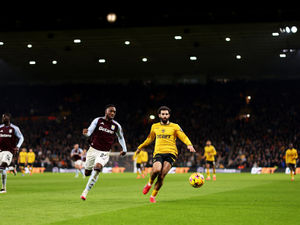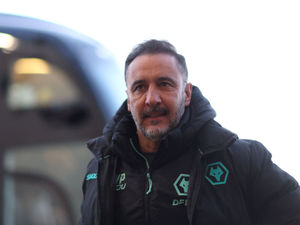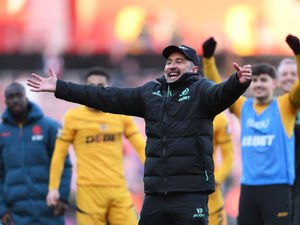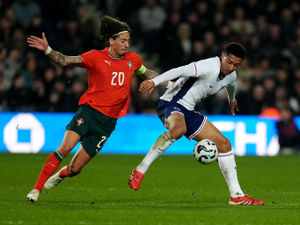Phil Parkes: The Baggie boy who became Wolves' number one
Growing up on the streets of Sandwell, Phil Parkes was a Baggie as a boy before Stan Cullis’s Wolves came calling.
At just 15 he was playing in an under-19 side in West Bromwich when he was spotted by a Wanderers scout.
The year was 1962; it didn’t take him much convincing and little did he know but the rest would be history.
The next two decades would see ‘Lofty’ make more than 300 appearances for the old gold and black before mixing with the likes of Pele and George Best in the United States of America.
Yesterday, the 6ft 4in shot stopper celebrated reaching the milestone age of 70 and – despite crossing the Black Country divide – is proud to say he will always be Wolves through and through.
But, it took four years at Molineux before Parkes got a look-in in the first team. An injury to the then current keeper Fred Davies and the departure of Jim Barron and Bob Knight saw him get his call-up at 19 – a year after signing his professional contract.
He became an instant favourite with the Molineux faithful after saving a penalty in his debut in a 3-2 win over Preston North End. And after Davies returned from injury, went on to cement his No.1 spot towards the end of the campaign.
Soon after, he had a Texaco Cup, a UEFA Cup final and record-breaking run of 127 consecutive league appearances to his name.
“I have no regrets, he said. “I was there for 18 years and and they were probably the best years of my life.
“My biggest disappointment was missing the League Cup final in 1974, he said.
“I’d played in every round. We’d beaten Norwich on the Saturday and I broke my ankle on the Monday.
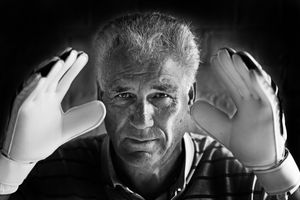
“I’ve been very lucky and have only had one bad injury which cost me a cup final but not my career. You look at players like Matt Murray, who I honestly would have gone on to be England No.1.”
Wolves’ journey to the final of the UEFA Cup in 1972 saw the strict Bill McGarry’s men beat the likes of Juventus and other European giants.
But the worst thing for Parkes, The Doog, Waggy and co was having to play an English team in the form of Spurs in the final.
“We played top foreign sides all the way through,” he said. “The biggest disappointment was playing an English team in the final.
“And I think that was the same for them. It would be different now if it was a one-off game at Wembley but home and away it was like playing two league games.
“As a footballer you try and achieve playing in Europe. It was great we played Juventus and in East Germany.
“Europe was a great experience. The funny one was we played a team from Holland and it all kicked off. The Doog and Ernie Hunt got sent off, they were going on and then Les Wilson picked a bucket of water up and threw it over one of their player’s heads! We played them a few weeks later back in Los Angeles and neither could play. Fred Davies, the keeper, ended up playing up front and even scored.”
After almost two decades at Wolves, Parkes tried his luck in America making more than 150 appearances at the likes of Vancouver Whitecaps, Chicago Sting and San Jose Earthquakes – where he teamed up with Manchester United icon George Best.
There was one game in particular that stands out in his memory, a San Jose friendly against the Fort Lauderdale Strikers in the latter of his career.
Best corkscrewed his way around the bewildered defenders before slotting in what is arguably one of his best ever and most underappreciated career goals.
“I got told I could have a free transfer and could have gone to Millwall and Derby but nothing appealed to me like Vancouver,” said Parkes. “People thought America was c**p but all the six years I was in America we never lost to a touring side.
“I went to the Chicago Stings and played with Georgie Best at San Jose. At his funeral they said (the goal against Fort Lauderdale) was the best goal he’d ever scored and I played in that game. He’s the best player I’ve ever seen. People say Pele, Cruyff, Beckenbauer, but Bestie was better in my opinion.
“George was great. I was there when he’d just had his son Callum and he never had a drink. He trained his socks off every day and worked with young American kids.
“He was a fan (of Wolves). People don’t realise how big this club is. Anywhere in the world people know Wolves.”
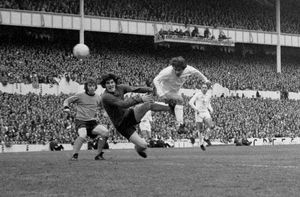
It wasn’t just Best who he’d crossed paths with whilst across the pond.
Parkes played against Eusebio, Beckenbauer and Johan Cruyff, but it was Brazilian legend Pele who came to the rescue in a Vancouver game against the New York Cosmos – after getting in a spot of bother with another World Cup winner.
“Vancouver White Caps were playing the New York Cosmos and it all kicked off.
“Carlos Alberto, who captained Brazil in the World Cup, was having a go at me. I said to him ‘I’ll kill you, you b******d’ and a voice behind me went ‘Phil, that’s not very nice’, I turned round and it was Pele! ”
In 1983, Parkes handed his gloves in and ended up working as a roofer for more than 22 years.
Today, he lives in Fordhouses where he has done for the past few decades. And, when he’s not playing golf or at Fordhouses Cricket Club, he sits on Wolves’ Former Players Association and gets down to Molineux as often as he can.
While he stills checks the Baggies results on a Saturday afternoon, his grandchildren are Wolves fans and the club will always have a place in his heart.
“It does become a big part of your life. It was a big part of my life and still is. Everywhere I go I talk about the club.
“A lot of the lads are still here. I still speak to Steve Daley everyday, John McAlle, Derek Parkin, Gerry Taylor, Willie Carr, John Richards and loads are still in Wolverhampton.
“They’ve all moved away and come back. Steve went to play in America, John went to Portugal. It can’t be that bad of a place can it?”


